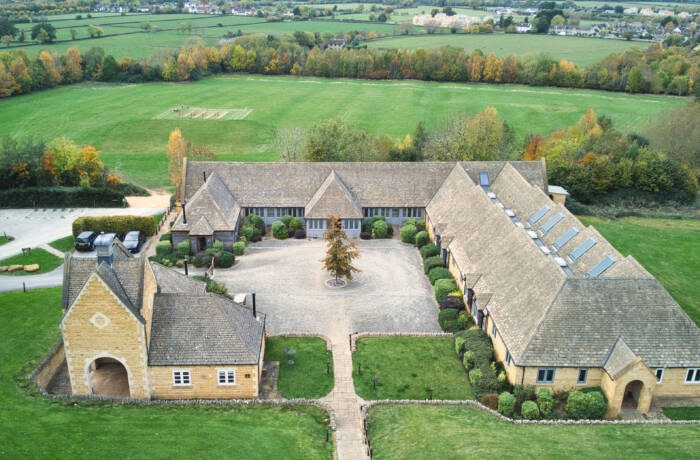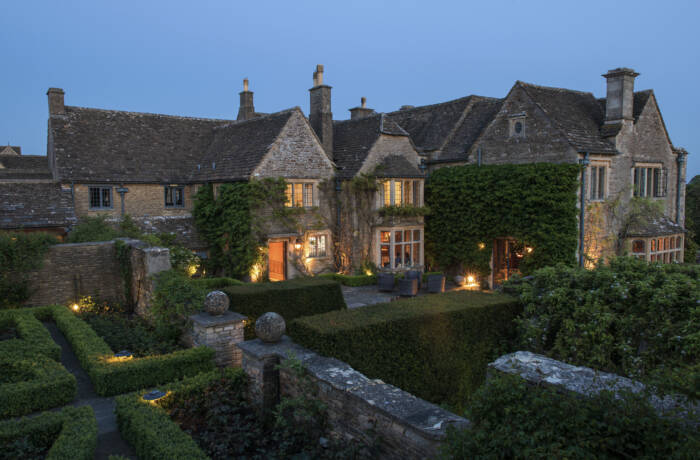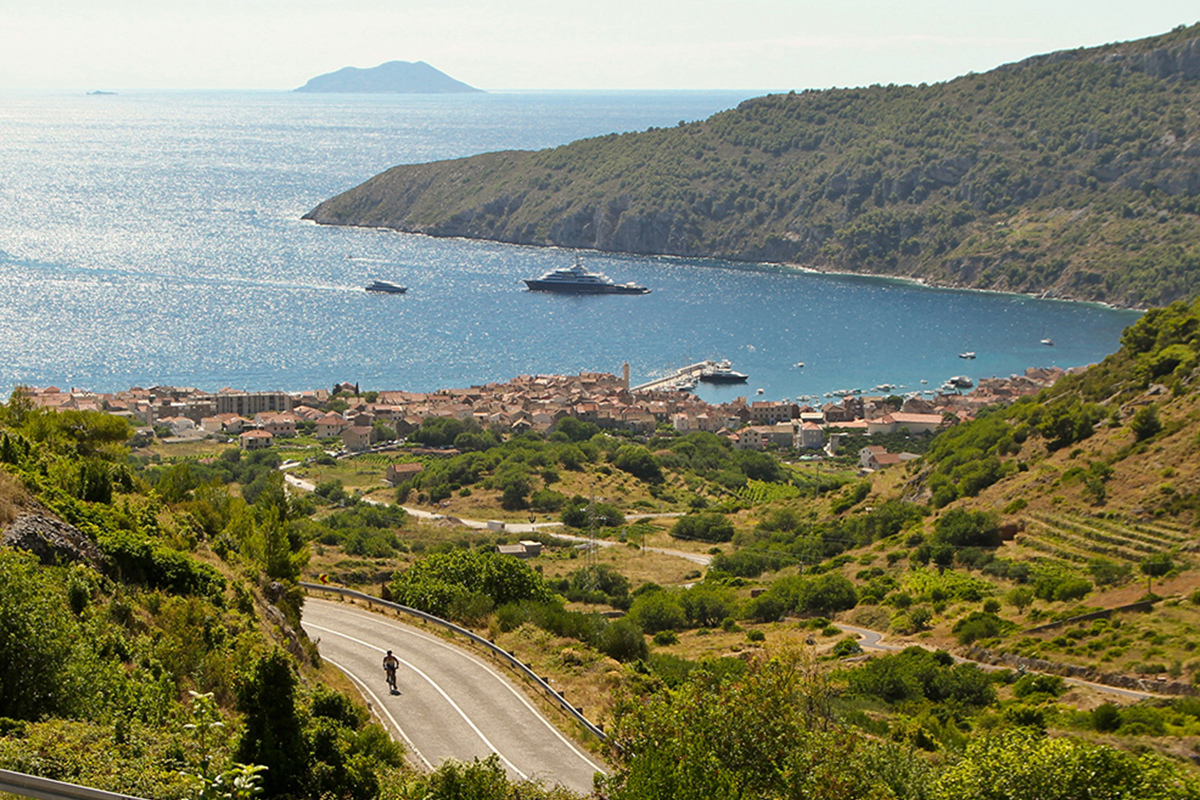
Butterfield & Robinson’s Dalmation Coast Active trip in Croatia
Mike Scarola is the CEO of Butterfield & Robinson, a luxury travel company with the goal of making a positive impact. He speaks to LUX about connecting with local communities and travelling on two wheels instead of four
LUX: What was the inspiration behind your Slow Find initiative?
Mike Scarola: The Slow Fund is driven by our passion for sustainability, focusing on education, culture, conservation, and preservation. We needed a formal vehicle to give back, which is essentially the genesis of the Slow Fund. Sustainable travel has been in our DNA since the beginning, just by the nature of what we do.
Seeing the world or seeing a region on bikes or on foot, we believe is a better, more sustainable way to travel. Currently we support nine initiatives globally, which range from conserving species and iconic landscapes across Africa, to supporting gender equality in the safari industry, to our art residency in France. The ideas behind the initiatives we choose to support typically come from our guides or our planners, because they know the region and its needs the best. We always aim to support sustainability efforts or cultural initiatives in the regions where we take travellers, and often try to bring our travellers into some of those initiatives while they’re on trip. This allows them to give back to the communities they visit and understand the essence of Slow Travel.
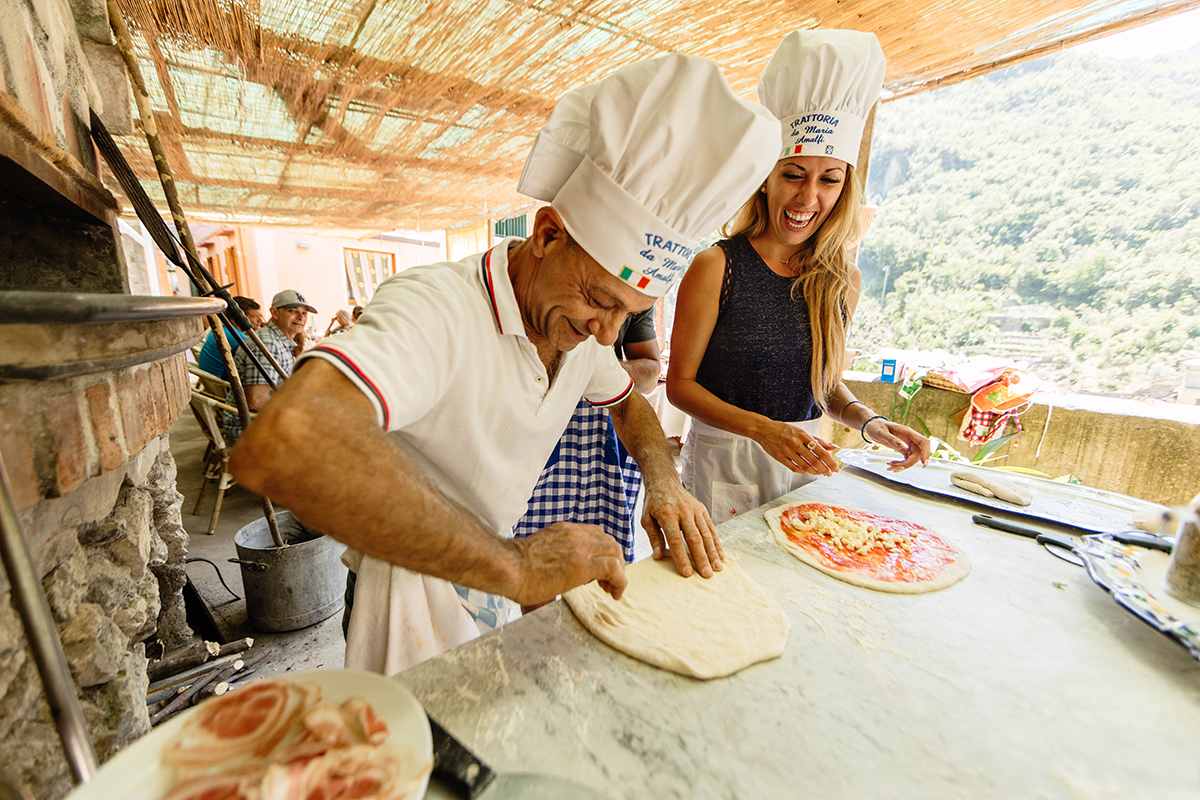
Pizza making lessons from a local chef in Italy on the Amalfi Coast Walking tour
LUX: When you first brought in this idea of sustainable travel and travelling on bicycle rather than taking cars, was there a high client demand for it, or was it something that you had to intensively market?
MS: The long story is that our founder, George Butterfield, is an unbelievable trailblazer. He had a huge passion for travel and bringing people to new experiences. He was always trying new trips, and in the early 70s he decided to try biking and as a part of a travel experience. But first time round, it just didn’t catch on.
Then he had someone in his office who, in the early 80s, started to make a case that we should try this again. He thought that people that are looking for luxury will also want to bike through Europe. George was actually pretty hesitant at the time, but they tried it and it absolutely took off in the early 80s.
LUX: How do you go about tracking your carbon footprint and why do you think it’s important that companies, especially travel companies, need to be doing this?
MS: We’re in our second year of very detailed tracking of our carbon footprint, and the reason we do this is because we want create a positive impact in the world. There’s a real crisis and we’re part of it, but we’re now trying to be part of the solution. The first step that we thought was important was to try to measure our impact. It’s tough, but once you measure that, you can communicate the biggest impacts of what your company has day-to-day on the environment, and then you can start to take solid steps to reduce it. We’ve always thought about the environment and taken steps to improve our trips and reduce our carbon footprint, but this formalisation allows us to track it on an annual basis.
Follow LUX on Instagram: luxthemagazine
LUX: What’s the philosophy behind your travel experiences?
MS: We think there is a large number of travellers who want to be active when they go on vacation, and who will get a better experience seeing a region on two wheels than they will on four. There’s so many regions now that are wonderful to hike through, to bike through, to canoe through, that also have luxury accommodations, which is often really important for us. We always try to bring our travellers to luxury accommodations, to high end food.
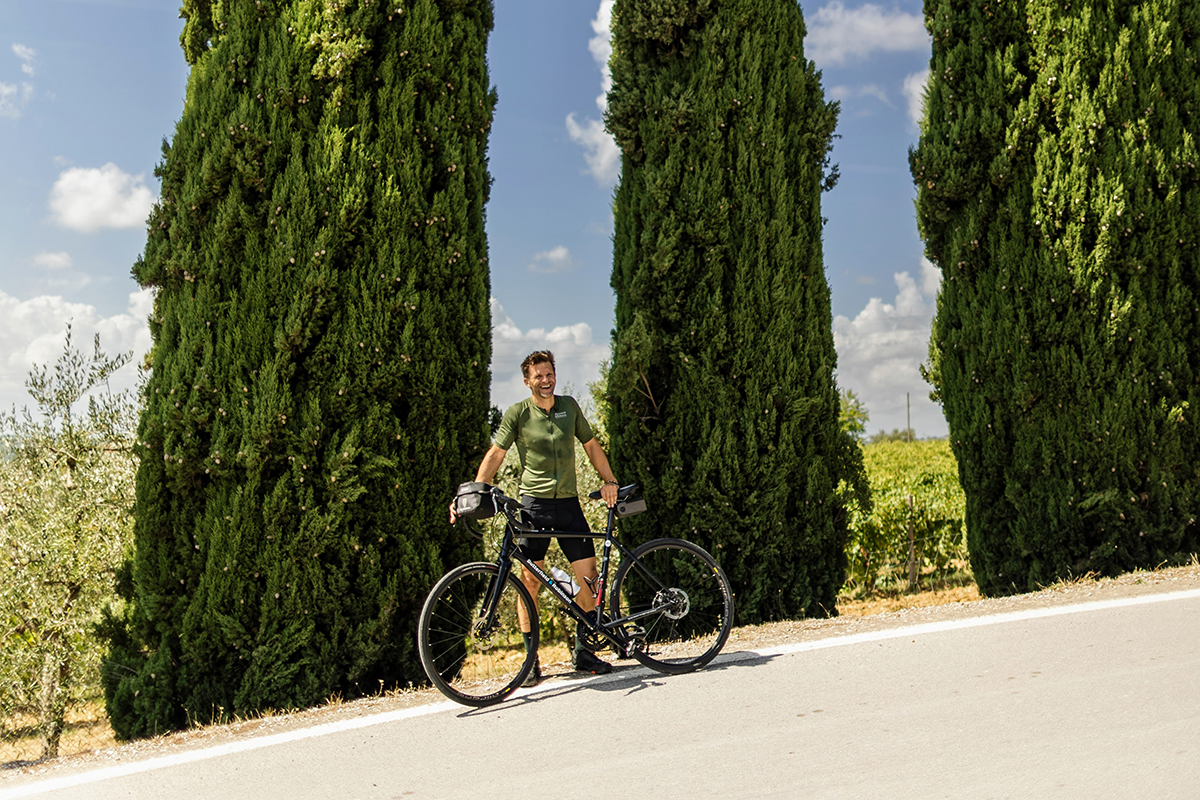
Mike Scarola on the Tuscany Wine Country Biking tour in Italy
LUX: You do a lot of community-based work trying to enhance their lives whilst travellers come and visit. How do you ensure a community focused approach while also balancing client demand?
MS: What we find is that travellers are looking for very authentic experiences. They’re not only looking to stay in the nicest hotel and eat the best meals. They’re looking to feel like they’ve come away with a connection and a deeper understanding of the region, which lines up really well with what we try to do. We try to source from locally-owned businesses and local people to help deliver experiences on the trip. So whether it’s a specialised tour, or stopping in the middle of your cycle for lunch in a restaurant owner’s backyard, where they’re going to teach you how to make pasta, these are the types of authentic experiences that our travellers are looking for. We work really hard on a day-to-day basis to try to find them and it’s only possible because of the network we have built up . We have about 125 guides that are located around the world, who know their regions intimately and are often the source of new experiences with locals.
LUX: Can you tell us more about your art residency initiative in France?
MS: Certainly. This a partnership with a former guide, who has an art residency program in France. They came to us to say that they often identify fantastic artists who are very much in need of financial aid, who could use our help. That’s all we really needed to know. A passion of ours is being about to support our guides, and to support art and culture. We’ve sponsored a number of artists. The latest one is a Belarussian artist, who had to leave their home country because of what’s happening over in Ukraine. This was a phenomenal artist who really didn’t have anything, and was going to have to give up their passion and give up their talent in order just to survive. So we helped to support.
LUX: What sets Butterfield and Robinson apart from other travel companies in the industry?
MS: The heart and soul of this business are our guides and our experienced designers. I would argue at the end of the day that we have the best guides and the best experienced designers on the planet.
Read more: Travelling Botswana on Eco-Safari, Review
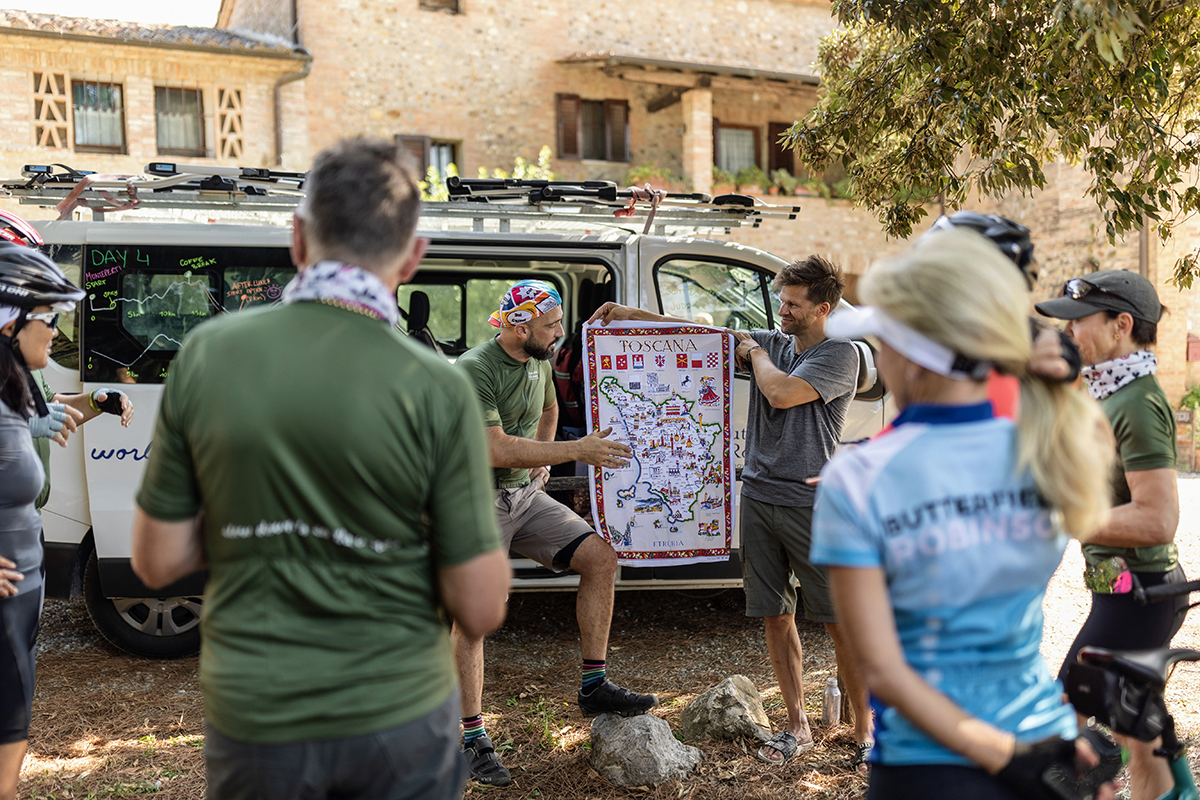
Mike Scarola guiding on the Tuscany Wine Country Biking tour in Italy
We always have a get together, a guide kick off at the beginning of the European season in April, and a guide gathering at the end of the European season. They are the most creative, well-travelled individuals who speak multiple languages with stories from the whole year on how they took travellers to amazing spots. We ask our travellers at the end of the trip to rate us on a whole bunch of different metrics, and the guide score is always the highest and most consistent, because they’re so knowledgeable about the region.
LUX: How do you aspire to continue redefining luxury travel in the years to come?
MS: The biggest thing for me is listening to our travellers. Our travellers have been the best source of direction over the last 57 years, and I think they’re going to continue to be. I think the demand for authentic experiences will continue to grow. The other thing is that travellers are looking to have a bit of an impact on their trips as well. I can see us doing it a lot more where they’re not just visiting and learning, but they’re participating, potentially in a project that they do on a trip that you know makes them feel a little more connected, a little more empathy for the region and the culture.
Find out more: www.butterfield.com

